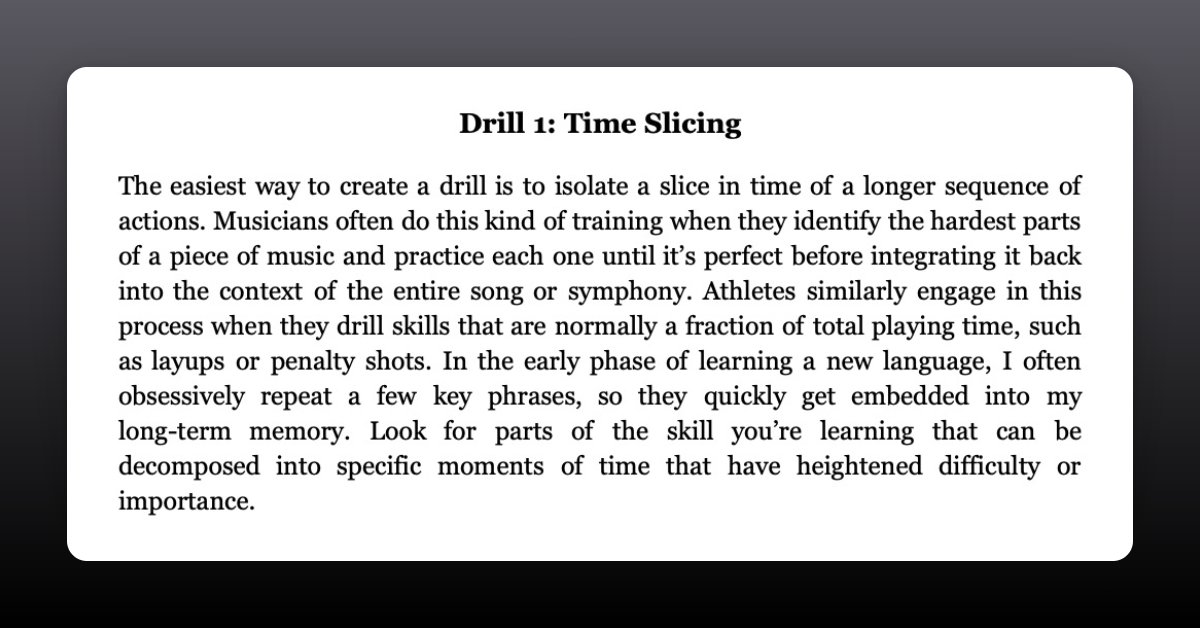One like = one opinion on Stoicism.
Inspired by @vgr, I'm tweeting an opinion about Stoic philosophy for every like this tweet gets.
We'll see how much I have to say about this—and how much you want me to jabber on about philosophy.
Inspired by @vgr, I'm tweeting an opinion about Stoic philosophy for every like this tweet gets.
We'll see how much I have to say about this—and how much you want me to jabber on about philosophy.
1/ After thinking about it a lot, I genuinely think all of reality falls in two categories:
• Things you control.
• Things you don't control.
Striving for something is within your control, but the outcome isn't.
• Things you control.
• Things you don't control.
Striving for something is within your control, but the outcome isn't.
2/ There's no use to fret over things outside your control.
It's better to work with fate rather than against it. You can fight a current, but often it's better to go with the flow.
It's better to work with fate rather than against it. You can fight a current, but often it's better to go with the flow.
3/ There are only four things truly worth striving for:
• Wisdom
• Courage
• Justice
• Moderation
Everything else is just noise. Externals don't make you happy, but cultivating character strengths does.
• Wisdom
• Courage
• Justice
• Moderation
Everything else is just noise. Externals don't make you happy, but cultivating character strengths does.
4/ Everything is in a web of cause and effect.
Understanding fate will help you accept fate—the things that happen around and to you and that are outside your control.
Understanding fate will help you accept fate—the things that happen around and to you and that are outside your control.
5/ Rationality can help us make sense of reality.
Maybe we're unable to grasp all of reality, but as humans, we can think and make conscious choices.
Using rationality, we can set a course of action that's in line with what's best for us and the whole.
Maybe we're unable to grasp all of reality, but as humans, we can think and make conscious choices.
Using rationality, we can set a course of action that's in line with what's best for us and the whole.
6/ Be like the Stoic archer.
Aim for your goals, but don’t grow attached to the outcome.
Aim for your goals, but don’t grow attached to the outcome.
7/ There is a God, and you and I are part of it.
I don’t believe God is a sky daddy. God is not a person.
God is Nature, which is everyone and everything. Like cells make a body, so do we make the living organism that's Nature.
I don’t believe God is a sky daddy. God is not a person.
God is Nature, which is everyone and everything. Like cells make a body, so do we make the living organism that's Nature.
8/ If we’re all part of the Whole, taking care of you means I’m taking care of myself.
Or as Marcus Aurelius once said:
“We are born to work together, just like the feet, just like the hands. ... Working against each other is unnatural.”
Or as Marcus Aurelius once said:
“We are born to work together, just like the feet, just like the hands. ... Working against each other is unnatural.”
9/ Suffering happens in the mind.
Like Epictetus said: “It’s not events that disturb us, but our judgments of those events.”
Challenge your labels every time you think something horrible has happened.
Like Epictetus said: “It’s not events that disturb us, but our judgments of those events.”
Challenge your labels every time you think something horrible has happened.
10/ Nobody does harm on purpose; it's their ignorance that blinds them.
When someone harms another because they think they gain something, they’re not evil but mistaken about what truly would benefit them.
Philosophy helps us see reality more clearly and rid us of ignorance.
When someone harms another because they think they gain something, they’re not evil but mistaken about what truly would benefit them.
Philosophy helps us see reality more clearly and rid us of ignorance.
11/ Nothing is permanent.
When something challenges your character, endure and remind yourself:
“This too shall pass.”
When something challenges your character, endure and remind yourself:
“This too shall pass.”
12/ Journaling allows you to judge and counsel yourself.
By repeating maxims and reviewing your thoughts and behavior every day, you can nudge yourself toward healthier habits.
By repeating maxims and reviewing your thoughts and behavior every day, you can nudge yourself toward healthier habits.
13/ Emotions are natural, but negative emotions tend to be based on mistaken interpretations.
When you feel a burst of anger come up, check what labels you’re attaching to the situation.
When you feel a burst of anger come up, check what labels you’re attaching to the situation.
14/ Only a good character can lead to true happiness.
Having a virtuous character means you have a type of skill; knowledge how to live well.
This knowledge will shape your whole personality and life.
Having a virtuous character means you have a type of skill; knowledge how to live well.
This knowledge will shape your whole personality and life.
15/ Happiness isn’t the goal of life (for Stoics).
What matters is that you work on your character and display wisdom, courage, justice, and moderation in everything you do.
What matters is that you work on your character and display wisdom, courage, justice, and moderation in everything you do.
16/ The only thing we can control is our thoughts.
And even they are often automatic. Therefore we need to shape our thinking through philosophical practice.
And even they are often automatic. Therefore we need to shape our thinking through philosophical practice.
17/ Fate works through you.
We don’t control the web of cause and effect, but we can influence it through our moment-to-moment decisions.
We don’t control the web of cause and effect, but we can influence it through our moment-to-moment decisions.
18/ There is no absolute good or bad.
The only evil is moral evil.
Everything that happens is for the best of the universe as a whole
The only evil is moral evil.
Everything that happens is for the best of the universe as a whole
19/ You play several roles in life.
Strive to play each role to the best of your abilities; it’s your duty to fellow humans and the Whole.
Strive to play each role to the best of your abilities; it’s your duty to fellow humans and the Whole.
20/ You will die some day.
It’s better to contemplate your death than to ignore the fact it’s coming.
It’s better to contemplate your death than to ignore the fact it’s coming.
21/ When you contemplate your death, you’ll use your time more wisely.
Being aware that your time is limited will drive you to make the most of the present moment.
Being aware that your time is limited will drive you to make the most of the present moment.
22/ Contemplate the future death of your loved ones.
Adversity hits harder when it comes unexpectedly. Train yourself for those times.
“When giving your child or wife a kiss, repeat to yourself, ‘I am kissing a mortal.’” — Epictetus
Adversity hits harder when it comes unexpectedly. Train yourself for those times.
“When giving your child or wife a kiss, repeat to yourself, ‘I am kissing a mortal.’” — Epictetus
23/ Desiring for things to be different leads to unhappiness.
Know what you can change, and aim to change it.
Know what you can't change and lovingly accept it.
Know what you can change, and aim to change it.
Know what you can't change and lovingly accept it.
24/ We should not merely accept our fate; we should love it.
Work with reality rather than against it.
Work with reality rather than against it.
25/ As Stoics, we feel the duty to take care of others.
Your first priority is your character. Then, your relatives, friends, community, all of humanity, and the earth. You're able to do so because of your character.
The Stoic Hierocles called these circles of concern.
Your first priority is your character. Then, your relatives, friends, community, all of humanity, and the earth. You're able to do so because of your character.
The Stoic Hierocles called these circles of concern.

26/ Anger is a bad advisor.
The Stoic philosopher Seneca even compared anger to “temporary madness.”
When you feel anger arises, observe. Don’t respond outwardly; go inward, and question the emotion.
Ask: “Was I really harmed, or is this my imagination?”
The Stoic philosopher Seneca even compared anger to “temporary madness.”
When you feel anger arises, observe. Don’t respond outwardly; go inward, and question the emotion.
Ask: “Was I really harmed, or is this my imagination?”
• • •
Missing some Tweet in this thread? You can try to
force a refresh












